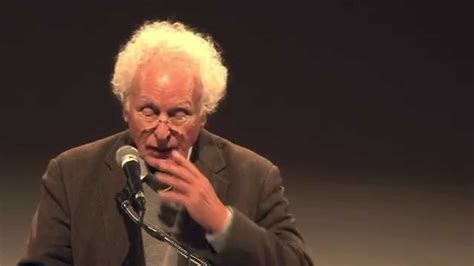A Quote by Nicholas Kristof
Individual storytelling is incredibly powerful. We as journalists know intuitively what scientists of the brain are discovering through brain scans, which is that emotional stories tend to open the portals, and that once there's a connection made, people are more open to rational arguments.
Related Quotes
The very same brain centers that interpret and feel physical pain also become activated during experiences of emotional rejection. In brain scans, they light up in response to social ostracism, just as they would when triggered by physically harmful stimuli. When people speak of feeling hurt or of having emotional pain, they are not being abstract or poetic, but scientifically quite precise.
Autism is a neurological disorder. It's not caused by bad parenting. It's caused by, you know, abnormal development in the brain. The emotional circuits in the brain are abnormal. And there also are differences in the white matter, which is the brain's computer cables that hook up the different brain departments.
One of the most powerful aspects of drumming and the reason people have done it since the beginning of being human is that it changes people's consciousness. Through rhythmic repetition of ritual sounds, the body, the brain and the nervous system are energized and transformed. When a group of people play a rhythm for an extended period of time, their brain waves become entrained to the rhythm and they have a shared brain wave state. The longer the drumming goes on, the more powerful the entrainment becomes. It's really the oldest holy communion.
So many people are struggling to create happiness while their brain is inundated by noise. If your brain is receiving too much information, it automatically thinks you're under threat and scans the world for the negative first. Because the brain is limited, whatever you attend to first becomes your reality.
What specialists try to do is get at least three imaging processes that are totally different from each other. Then you can run these through a computer program and make a composite image. In one scenario you suspect a brain tumor, so you image the brain tumor with PET scans, MRIs, and CT scans and create a 3D model. The doctor opens up the skull to excise the cancer, but they can't see anything. Do you cut out what's supposed to be in that spot or not? The current story is yes, you believe the images over what you see with your eyes.
Scientists who study brain-wave activity found that the longer one watches television, the more likely the brain will slip into "alpha" level: a slow, steady brain-wave pattern in which the mind is in its most receptive mode. It is noncoggnitive mode; i.e., information can be placed into the mind directly, without viewer participation.
The pace at which science has progressed has been too fast for human behaviour to adapt to it. As I said we are still apes. A part of our brain is still a paleo-brain and many of the reactions come from our fight or flight instinct. As long as this part of the brain can take over control the rational part of the brain (we will face these problems).
I came back and in '63, I was at the British Open, trying to win my first British Open. And I had what I thought was a two-shot lead with two holes to play at Lytham. I remember it like it was yesterday. Anybody with a proper brain would have played the ball short of the hole. I didn't have a proper brain at the time. But you have to make that mistake to learn it.
Put simply, behavioural economics argues that human beings' decision-taking is guided by the evolutionary baggage which we bring with us to the present day. Evolution has made us rational to a point, but not perfectly so. It has given us emotions, for example, which programme us to override our rational brain and act more instinctively.

































